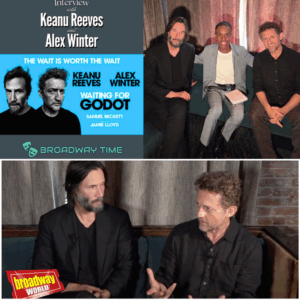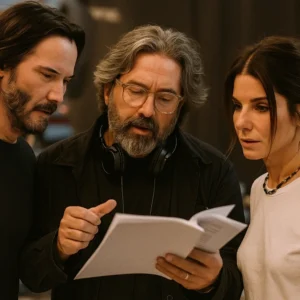In the shadowed aftermath of a shattered heart, where the shards of what was glint like broken glass under a merciless moon, country music has always been the lantern bearer. It doesn’t dwell in the wreckage; it maps the way out. Keith Urban’s “Brown Eyes Baby,” released in the sweltering summer of 2022, arrives not as a dirge for the fallen but as a hand extended across the chasm—a gentle pull toward the horizon where dawn cracks the night. This isn’t the raw howl of loss that defined Urban’s earlier cuts like “Stupid Boy” or the brooding introspection of “We Were.” No, “Brown Eyes Baby” is the pivot, the exhale after the storm, the song that whispers, “The end isn’t the story; it’s the prologue to what comes next.” Penned by a cadre of Nashville heavy-hitters—Morgan Wallen, Josh Thompson, Rodney Clawson, and Will Bundy—it’s a track that builds like a slow-rising tide, drawing listeners from the undertow of sorrow into the buoyant rhythm of rebirth. At its core, it’s a narrative of resilience: a woman, heart in tatters, stepping into the fray of a night out, and a steadfast suitor ready to chase the blues from her gaze. In an era starved for silver linings, Urban’s voice—warm as aged bourbon, edged with electric fire—turns this tale into a beacon, proving that heartbreak’s true sequel is hope.
The song’s genesis reads like a serendipitous backroad drive, the kind where the radio flips to gold just as the landscape shifts. Urban first encountered the demo in January 2022, amid the whirlwind of plotting his Speed of Now World Tour. “I had this visceral reaction,” he later shared in a chat with Apple’s Zane Lowe, his Kiwi-Aussie drawl laced with that signature enthusiasm. “I just loved it. Once I heard it a lot more, I realized it’s everything: it’s the lyric, it’s the melody, it’s the way the song is written.” What hooked him wasn’t the polished sheen but the raw empathy—the way it captured that fragile threshold between mourning and mending. Co-producer Urban layered in his hallmarks: shimmering guitar riffs that evoke sun-dappled fields, a groove that’s equal parts sway and strut, and a chorus that unfurls like a confession over campfire embers. Wallen, no stranger to redemption arcs himself, co-wrote it during a fertile Nashville session, channeling the quiet alchemy of turning pain into possibility. “It’s about reigniting joy,” Urban elaborated to radio host Kelleigh Bannen, “wanting to bring out the best in somebody, help them rediscover those colors life’s dulled—the personalities and spark that heartbreak or responsibilities bury.”
Lyrically, “Brown Eyes Baby” unfolds like a Polaroid developing in reverse: from faded snapshots of regret to vivid frames of forward motion. The opening verse paints her in the dim half-light of resolve: “You made up your mind, got off the couch / You did up your hair, now you’re goin’ out / You put on that party dress / Even though your heart’s a mess.” It’s a portrait of fortitude in fragility—the kind of woman who’s traded sweatpants for sequins not out of denial, but defiance. Her friends arrive like a cavalry of camaraderie, whisking her to a bar where neon promises pulse against the ache. Enter the narrator, not as a savior in spurs but a quiet observer with a healer’s intent: “Your friends swung by, you hit the town / Me, I’m sittin’ here with a beer, holdin’ down / This barstool like it’s my job / Watchin’ you try to smile through the hurt you’re not over.” There’s no grand gesture here, no sweeping her off her feet amid fireworks; it’s the subtle sorcery of presence, the art of witnessing without overwhelming.
As the track builds—drums kicking in like a heartbeat quickening, Urban’s Telecaster weaving threads of golden light—the chorus erupts into its emotional apex: “I can put the smile back where your smile goes / Dreams back in what you see when your eyes close / I’ll be the buzz that you feel when you sip slow / Slow dance right back in your dirt road.” These lines are poetry distilled from the dust of daily survival, evoking the tactile thrill of reconnection: the warmth of a hand on a hip during a two-step, the fizz of a cold one easing the edges, the pull of a gravel path under tires leading home. It’s a vow to “put the sun back in your sunshine,” to infuse “a little love into your late night,” culminating in that killer hook: “Ain’t gotta be nothin’ more than one more drink / And maybe I can take the blue out of your brown eyes, baby.” The “blue” here isn’t mere melancholy; it’s the spectral intruder, the ghost of grief tinting her world sapphire. Urban’s delivery sells it—husky lows swelling to a falsetto flourish, his voice a bridge from blues to brown, sorrow to soil-rich warmth.
This motif of color as emotional cartography isn’t accidental; it’s a thread Urban weaves through his discography. Fans couldn’t miss the echo of his 2016 smash “Blue Ain’t Your Color,” a sultry plea to a heartbroken belle: “That blue ain’t your color / But I can’t help it, baby / It’s my favorite color on you.” Where that track luxuriated in the allure of shared suffering, “Brown Eyes Baby” flips the script, chasing the cerulean away with earthen tones. The music video, directed by Chris Hauf and released in February 2023, masterfully interlaces the two: sepia flashbacks of a couple’s unraveling dissolve into vibrant present-day vignettes of tentative flirtation. A woman (played by model-actress Alexa Demie) emerges from isolation, her wardrobe shifting from muted grays to fiery reds, mirroring the song’s arc. Urban himself cameos as the barfly with benevolent eyes, strumming under bar lights that flicker like fireflies. “It’s a story of healing,” he told Taste of Country, nodding to how the clip nods to its predecessor. “That blue was beautiful in its pain, but brown? That’s the color of coming alive again.”
Urban’s own odyssey through love’s labyrinth lends the track an authenticity that resonates like a well-worn boot against barn wood. Born in Whangarei, New Zealand, and raised in Queensland, Australia, the 57-year-old troubadour chased Nashville’s neon dream in the ’90s, trading surfboards for six-strings. His catalog is a scrapbook of relational reckonings: the euphoric highs of “Kiss a Girl,” the gut-wrench of “You’ll Think of Me,” the marital meditations of “The Fighter” with Carrie Underwood. But beneath the arena polish beats a heart schooled in survival. His 2006 union with Nicole Kidman—Hollywood royalty meets country crooner—has weathered wildfires, fertility struggles, and the relentless churn of spotlights. “Heartbreak’s universal,” Urban reflected in a 2022 People interview, “but so is the turn toward light. That’s what this song captures—that moment you choose to step forward, even when your feet feel like lead.” Kidman’s influence whispers through his work; her poised vulnerability echoes in the heroine’s quiet courage, a subtle homage to the woman who’s been his anchor through tempests.
The song’s release was a masterstroke of timing, dropping July 8, 2022, like summer rain on parched earth. Debuted live at the tour’s Mansfield, Massachusetts kickoff in April, it quickly became a setlist staple, crowds swaying under confetti skies. Urban previewed clips on Instagram, his grin boyish as he teased, “Y’all ready for this one?” The studio cut, co-produced with Dann Huff, hit country radio like a warm front, climbing to No. 12 on Billboard’s Hot Country Songs chart by fall. Critics hailed it as a “vocal and lyrical showcase,” with Taste of Country‘s Billy Dukes praising how Urban’s “sensitive touch” and “electric guitar” transformed potential bro-country tropes into romantic reverie. The Music Universe‘ Buddy Iahn spotlighted the “beautiful, melodic chorus” and “signature Urban guitar hook,” calling it a “sway-along groove” primed for bonfires and barstools. By 2023’s inclusion on the High deluxe edition, it had amassed over 100 million Spotify streams, a testament to its evergreen appeal.
Fan lore swirls around “Brown Eyes Baby” like fireflies at dusk. On platforms like TikTok and X, users stitch heartbreak montages with the chorus, captioning “When the ex fades and the future calls.” One viral clip—a single mom lip-syncing the bridge while dancing with her toddler—racked up 5 million views, users flooding comments with “This healed me tonight.” Reddit threads dissect its universality: “It’s the friendzone anthem for the faithful,” one user posited, while another confessed, “Post-divorce, this was my reset button.” Live, it ignites catharsis; at a 2024 Las Vegas stop, Urban spotted a sign reading “Take the blue out of my brown eyes, Keith!” and pulled the fan onstage for an impromptu duet, her voice cracking into laughter mid-chorus. “That’s the magic,” he later posted, “seeing y’all own the story.”
In 2025, as Urban preps a genre-bending LP blending Aussie roots with Nashville fire—teased in a recent Sydney residency—the song endures as a milestone in his metamorphosis. At 57, with daughters Sunday Rose (16) and Faith Margaret (14) navigating teen tides, he’s leaned into legacy-building: mentoring on The Voice, curating playlists for father-daughter drives, and penning tracks that bridge generations. “Brown Eyes Baby” fits this ethos—a father’s gentle nudge to his girls, a husband’s vow renewed, an artist’s olive branch to the wounded. It’s not blind optimism; it’s earned, the kind forged in the furnace of “what ifs” and “what nows.”
Picture it: a dimly lit dive, the jukebox humming low, a woman at the end of her rope nursing a drink that tastes like tears. Then, across the haze, eyes meet—brown ones shadowed by blue. A song starts, slow and insistent, promising not to erase the scars but to dance beside them. That’s “Brown Eyes Baby”—not a cure-all, but a companion on the comeback trail. In Keith Urban’s hands, it’s more than melody; it’s manifesto. After the heartbreak, the turn isn’t thunderous; it’s tender, a dirt-road waltz toward dawn. And as the final riff fades, you’re left not broken, but blooming. The blue recedes, the browns brighten, and suddenly, starting again doesn’t feel like surrender. It feels like salvation.




